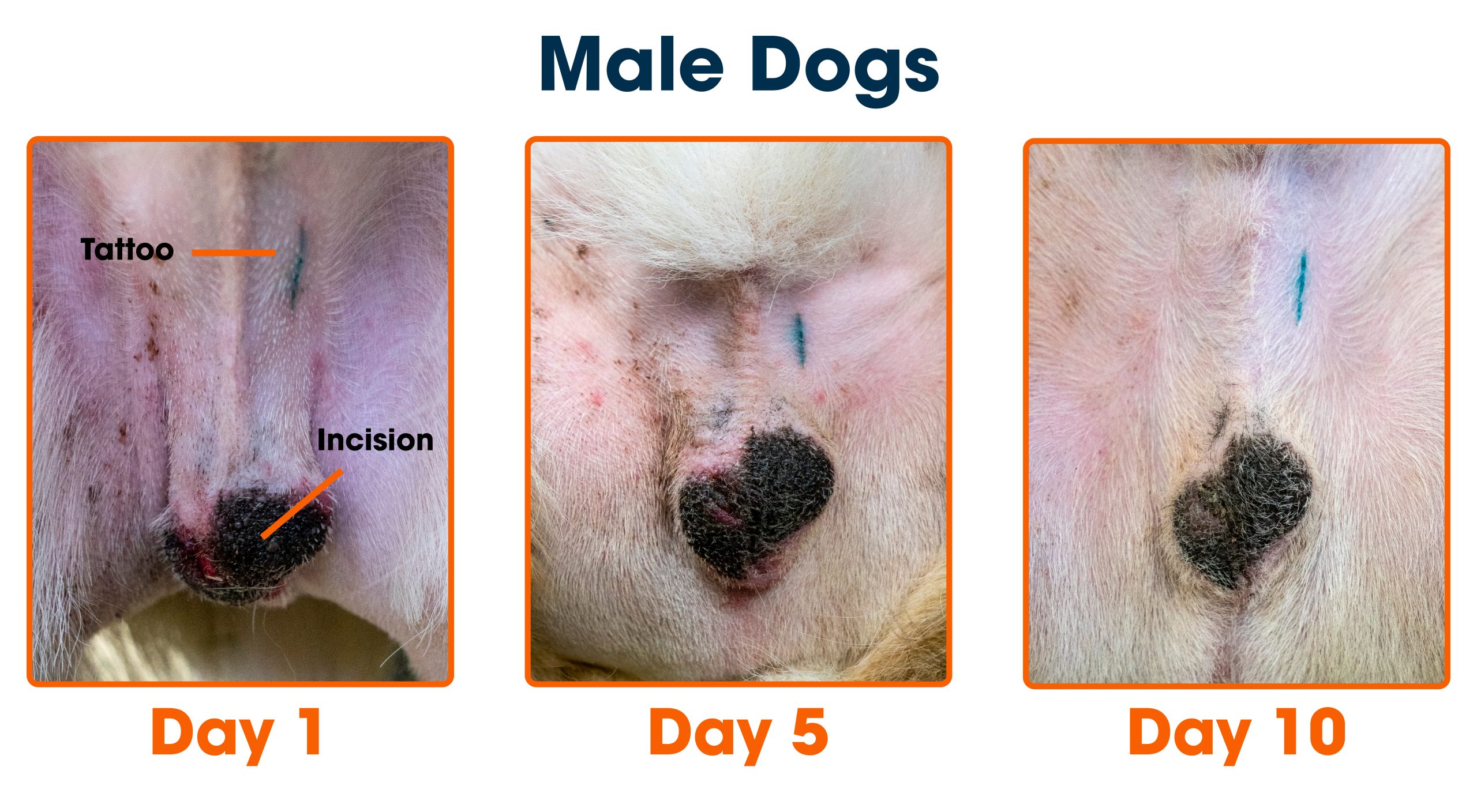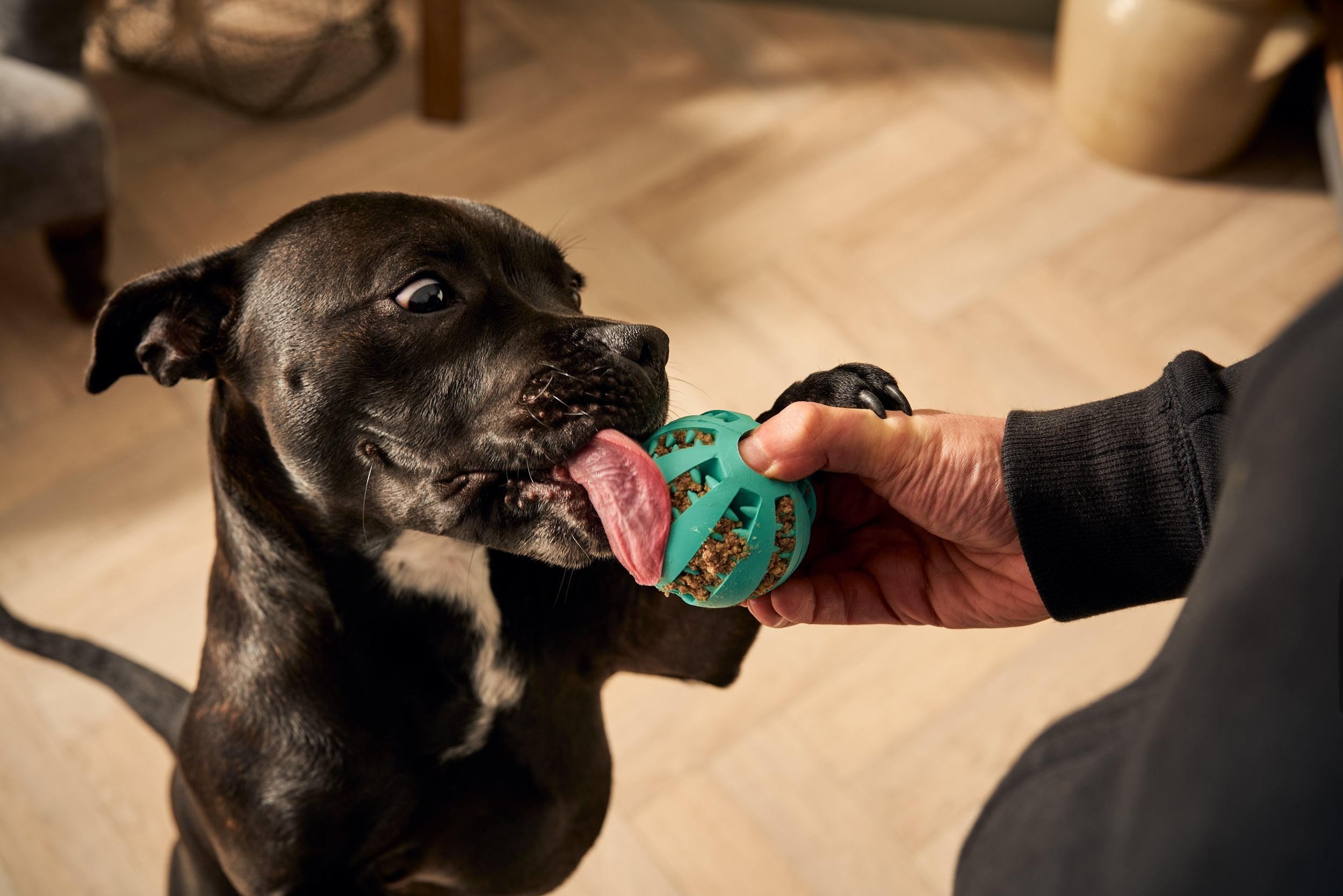Choosing the right food for your puppy can feel overwhelming. You want to give your new furry friend the best start in life, but with so many options, how do you know what to pick?
The food you choose now will shape your puppy’s health, energy, and happiness for years to come. You’ll discover exactly what type of dog food will meet your puppy’s unique needs. Keep reading, and you’ll feel confident knowing you’re feeding your puppy the perfect meal every time.
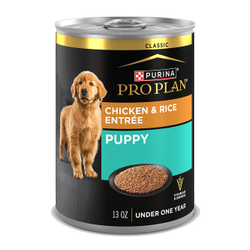
Credit: www.purina.com
Choosing Puppy Food
Choosing the right food for your puppy is crucial for their growth and health. As a new puppy parent, you might feel overwhelmed by the plethora of options available. Do you opt for dry kibble or moist canned food? Should you go grain-free or stick to traditional formulas? Organic and natural choices are also gaining popularity. Let’s dive into these options to help you make an informed decision that best suits your puppy’s needs.
Dry Vs Wet Food
Dry food, or kibble, is convenient and often more affordable. It’s easy to store and has a longer shelf life. Kibble can also help with dental health by reducing plaque buildup. However, it might not be as palatable as wet food.
Wet food, on the other hand, usually has higher moisture content, which is beneficial for hydration. Puppies often find it more appealing due to its richer aroma and taste. But it can be pricier and requires refrigeration after opening. Consider your puppy’s preferences and your lifestyle when choosing between the two.
Grain-free Options
Grain-free diets have been trending, claiming to be more aligned with a dog’s natural diet. Some puppies may have grain allergies, making these options vital. However, grains provide essential nutrients, and not all puppies need a grain-free diet.
If your puppy shows signs of grain sensitivity, consult with a vet before switching to a grain-free formula. Remember, grain-free doesn’t mean carb-free, as these foods often include alternative carbohydrate sources like potatoes or peas.
Organic And Natural Choices
Organic and natural foods promise fewer additives and pesticides, which can be beneficial for your puppy’s health. These options are often made with high-quality ingredients, providing better nutrition.
However, they may come with a higher price tag. If you value feeding your puppy food with fewer chemicals and artificial ingredients, organic might be the way to go. Always read labels carefully to ensure the product meets your expectations.
Ultimately, the best food for your puppy depends on their individual needs and your personal preferences. Try observing how your puppy reacts to different foods and consult with a veterinarian for tailored advice. What will you choose for your furry friend’s mealtime?
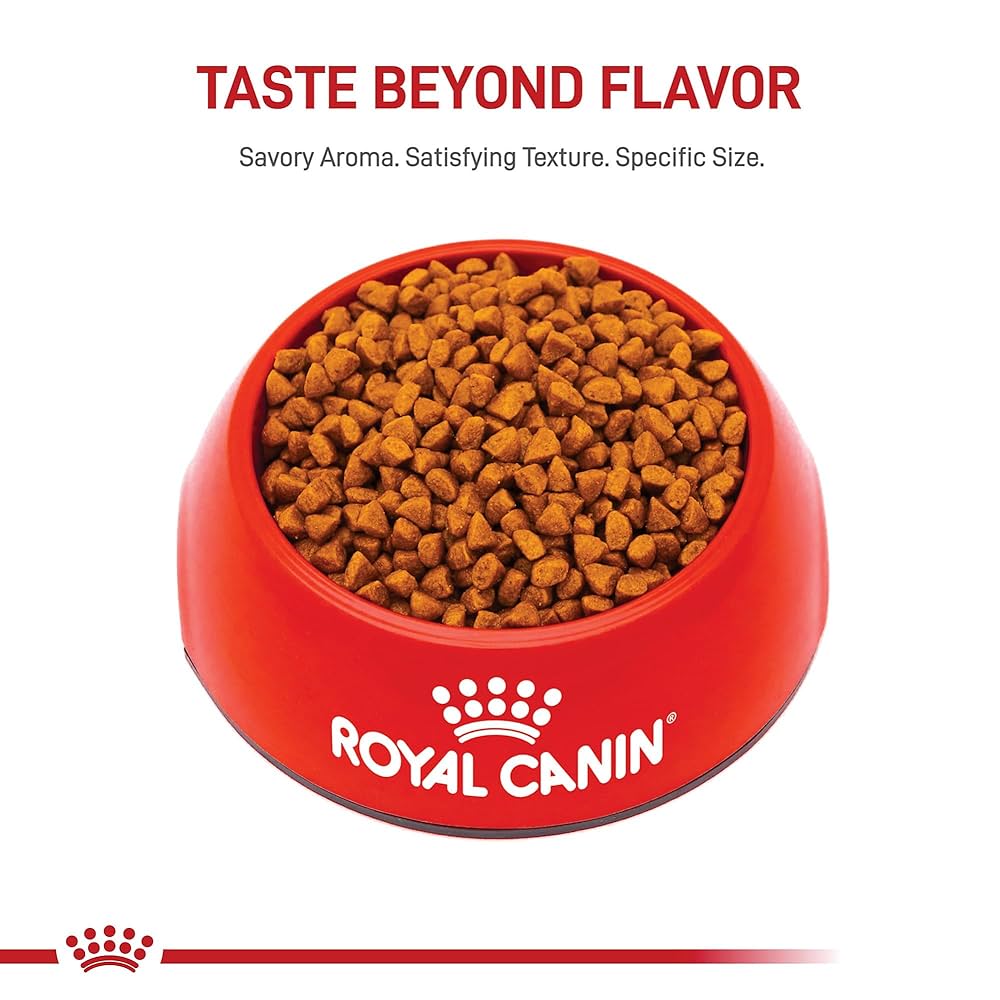
Credit: www.amazon.com
Nutritional Needs
Understanding your puppy’s nutritional needs is key to helping them grow strong and healthy. Puppies have different dietary requirements than adult dogs because they are developing rapidly. Giving your puppy the right food ensures they build a solid foundation for a long, active life.
Essential Nutrients For Growth
Your puppy needs a balanced mix of nutrients to support their development. These include proteins, fats, carbohydrates, vitamins, and minerals. Each nutrient plays a specific role, like building muscles, providing energy, or supporting the immune system.
Did you know that too little calcium can affect your puppy’s bone growth? That’s why a well-rounded diet isn’t just about quantity but the right quality too. Check your puppy food label for balanced nutrient content designed for growth stages.
Protein And Fat Requirements
Protein is the building block for your puppy’s muscles, organs, and skin. Puppies need more protein than adult dogs because they’re actively growing. Look for puppy foods with around 22-32% protein to meet these needs.
Fat is another important energy source. It helps keep your puppy’s skin and coat healthy while fueling their playtime. Ideally, choose puppy food containing 8-20% fat. Too little fat can leave your pup tired and dull, while too much can cause digestive issues.
Vitamins And Minerals
Vitamins and minerals support everything from bone development to immune defense. Key vitamins include A, D, and E, while minerals like calcium, phosphorus, and zinc help build strong teeth and bones.
Have you ever noticed your puppy’s coat looking dull or their energy dropping? It might be a sign they’re missing essential vitamins or minerals. Make sure your puppy’s food is formulated to include these vital nutrients in the right amounts for healthy growth.
Feeding Schedule
Setting a proper feeding schedule is vital for your puppy’s health and growth. Puppies need regular meals to support their energy and development. A consistent routine helps with digestion and house training. Adjust feeding times as your puppy grows to match their changing needs.
Frequency By Age
Puppies need more frequent meals than adult dogs. Young puppies under three months should eat four times daily. From three to six months, reduce to three meals a day. After six months, two meals daily are usually enough. Keep the schedule consistent every day.
Portion Sizes
Portion sizes depend on your puppy’s age, weight, and breed. Follow the guidelines on the dog food package as a start. Watch your puppy’s weight and adjust portions if needed. Avoid overfeeding to prevent obesity. Divide the daily amount into equal meals.
Transitioning To Adult Food
Switch to adult dog food around one year old. Start by mixing a small amount of adult food with puppy food. Increase adult food slowly over 7 to 10 days. This gradual change helps prevent stomach upset. Keep monitoring your puppy’s health during the transition.
Special Dietary Considerations
Feeding your puppy isn’t just about choosing any dog food off the shelf. Special dietary considerations play a big role in ensuring your puppy grows up healthy and happy. Paying close attention to specific needs can prevent health issues and support their overall development.
Allergies And Sensitivities
Does your puppy scratch more than usual or have upset stomachs? Food allergies or sensitivities might be the cause. Common triggers include beef, dairy, wheat, and chicken.
Look for dog food labeled “hypoallergenic” or with limited ingredients. These options cut out common allergens and can help pinpoint what bothers your puppy. Always introduce new foods slowly and watch for any reactions.
Breed-specific Diets
Different breeds have unique nutritional needs. Large breeds like Great Danes need controlled calcium levels to support proper bone growth, while small breeds like Chihuahuas benefit from calorie-dense formulas due to their fast metabolism.
Does your puppy’s breed require special nutrients? Some brands create formulas tailored to breed size and activity level. Feeding the right diet can prevent growth problems and keep energy levels steady.
Health Conditions
If your puppy has health issues like digestive problems or joint concerns, their diet must support those needs. For example, puppies with sensitive stomachs may need easily digestible food with added probiotics.
Consult your vet to identify any special dietary requirements. Foods rich in omega-3 fatty acids can help puppies with inflammation or skin conditions, while controlled protein diets assist those with kidney problems.
Homemade Vs Commercial Food
Choosing the right food for your puppy involves deciding between homemade and commercial options. Each choice offers distinct benefits and challenges. Understanding these can help provide the best nutrition for your growing dog.
Pros And Cons
- Homemade Food:Allows control over ingredients and freshness. It can suit puppies with allergies or sensitivities. Requires time and knowledge to balance nutrients properly. Risk of missing essential vitamins and minerals if not prepared well.
- Commercial Food:Convenient and time-saving. Formulated to meet nutritional standards. Wide variety of options for different breeds and life stages. Some brands may contain fillers or low-quality ingredients.
Safety Tips For Homemade Meals
- Consult a vet or pet nutritionist before changing diets.
- Include a balance of protein, fats, and carbohydrates.
- Avoid harmful ingredients like onions, garlic, and chocolate.
- Use fresh, high-quality ingredients and cook foods thoroughly.
- Consider adding supplements to meet all nutritional needs.
Choosing Quality Commercial Brands
- Look for brands with AAFCO approval or similar standards.
- Check ingredient lists for named proteins as the first ingredient.
- Avoid foods with excessive fillers, artificial colors, or preservatives.
- Read reviews and seek recommendations from trusted sources.
- Choose formulas designed specifically for puppies’ growth needs.
Common Feeding Mistakes
Feeding your puppy the right way is crucial for its growth and health. Yet, many dog owners unknowingly make mistakes that can harm their furry friends. Understanding common feeding mistakes helps you avoid them and ensures your puppy thrives.
Overfeeding And Obesity
It’s easy to think that more food means a happier puppy, but overfeeding can lead to obesity. Excess weight strains your puppy’s joints and organs, causing long-term health issues.
Watch your puppy’s body condition, not just the amount of food. Use feeding guidelines on the dog food package as a starting point, then adjust based on your puppy’s activity and growth.
Have you noticed your puppy gaining weight too fast despite following feeding instructions? It might be time to reassess portion sizes or feeding frequency.
Avoiding Harmful Ingredients
Not all dog foods are created equal. Some contain fillers, artificial colors, and preservatives that offer little nutrition and might cause allergies or digestive problems.
Check labels carefully. Ingredients like corn, soy, and wheat are common fillers that some puppies react to negatively.
Choosing a high-quality dog food with natural ingredients can prevent many health issues and support your puppy’s immune system.
Recognizing Food Intolerances
Puppies can have food intolerances that show up as skin problems, digestive upset, or unusual behavior.
If your puppy frequently has diarrhea, itchy skin, or vomiting, consider an elimination diet to pinpoint the problem ingredient.
Pay close attention to how your puppy reacts after meals. Identifying intolerances early helps you select the right food and keeps your puppy comfortable and healthy.
Supplements And Treats
Supplements and treats play an important role in your puppy’s diet. They can support growth, health, and training. Choosing the right ones keeps your puppy happy and healthy.
When To Use Supplements
Supplements help fill nutritional gaps in your puppy’s diet. Use them only if your vet recommends. Common supplements include omega-3 fatty acids for skin and coat health and glucosamine for joint support. Avoid giving supplements without professional advice. Overuse can harm your puppy.
Healthy Treat Options
Treats are great for training and bonding. Choose healthy treats that provide nutrients without extra calories. Good options include:
- Small pieces of cooked chicken or turkey
- Carrot sticks or green beans
- Commercial puppy treats with natural ingredients
- Freeze-dried liver bites
Limit treat intake to avoid upsetting your puppy’s diet balance.
Avoiding Toxic Foods
Some human foods can harm puppies. Avoid feeding:
- Chocolate
- Grapes and raisins
- Onions and garlic
- Avocado
- Xylitol (found in sugar-free gum)
Keep toxic foods out of reach to protect your puppy’s health.
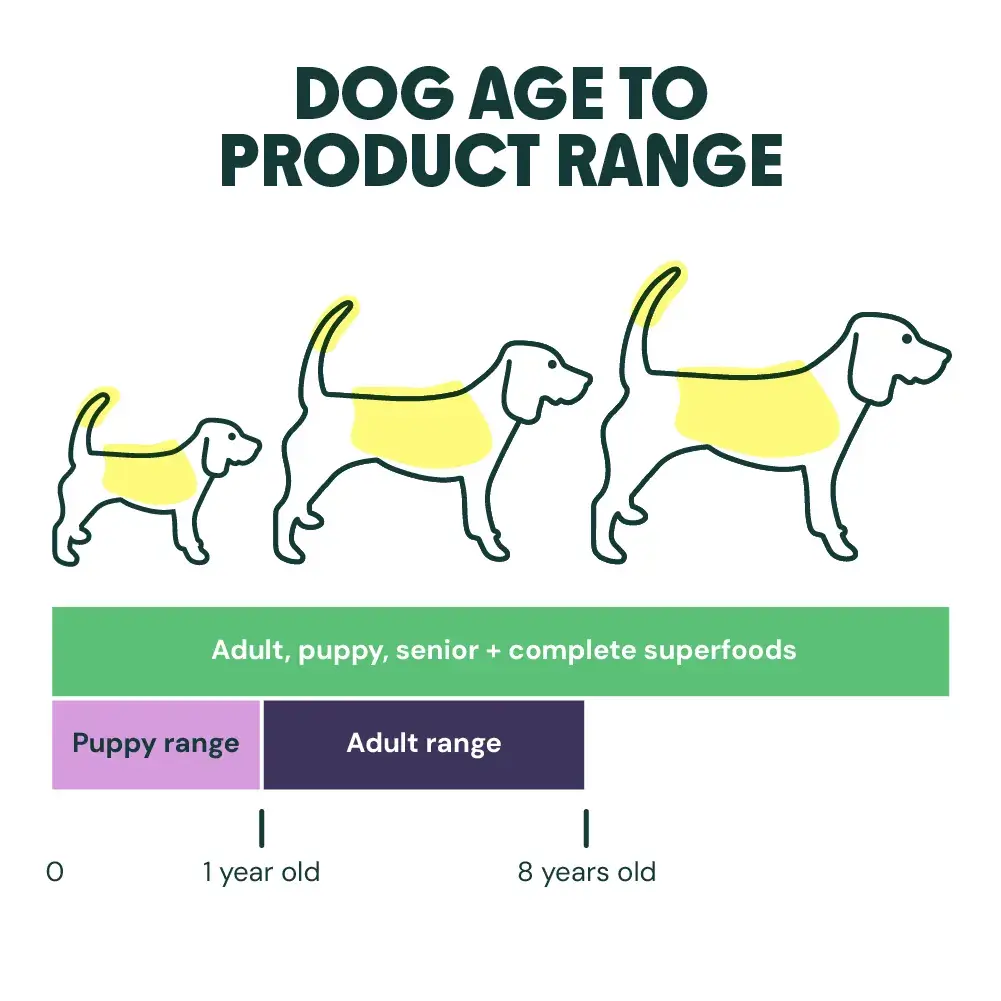
Credit: www.bellaandduke.com
Frequently Asked Questions
What Is The Best Type Of Food For Puppies?
Puppies need specially formulated puppy food with balanced nutrients. This food supports their growth and development. Look for high protein and DHA content. Avoid adult dog food as it lacks essential puppy nutrients.
How Often Should I Feed My Puppy Daily?
Feed your puppy 3 to 4 times a day. This schedule helps maintain energy and supports steady growth. Adjust portions according to age, breed, and vet recommendations. Avoid overfeeding to prevent obesity and digestive issues.
Can I Feed My Puppy Wet Or Dry Food?
Both wet and dry puppy foods are suitable. Dry food helps maintain dental health, while wet food offers hydration. You can also mix both for variety and balanced nutrition. Choose high-quality products with natural ingredients.
When Should I Switch From Puppy To Adult Dog Food?
Switch to adult dog food around 12 months for small breeds and 18-24 months for large breeds. Adult food has different nutrient ratios suitable for mature dogs. Consult your vet for the best transition time and method.
Conclusion
Choosing the right food helps your puppy grow strong and healthy. Puppies need nutrients that support their energy and development. Always pick food made for puppies, not adults. Check the ingredients for real meat and balanced vitamins. Feeding the right food leads to a happy, active dog.
Trust your care to give your puppy the best start. Remember, good food shapes a bright future for your pet. Keep learning and adjusting as your puppy grows. Simple steps make a big difference in their life.

